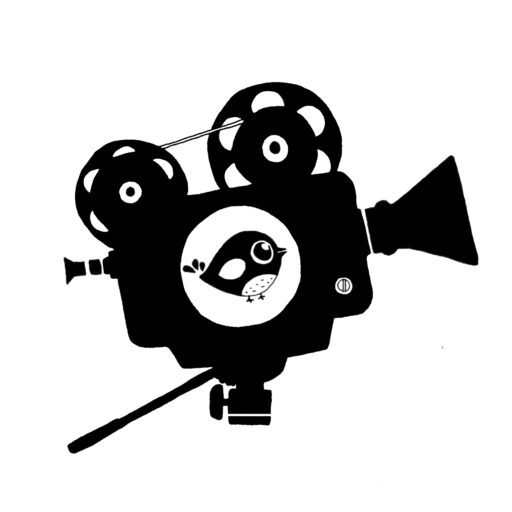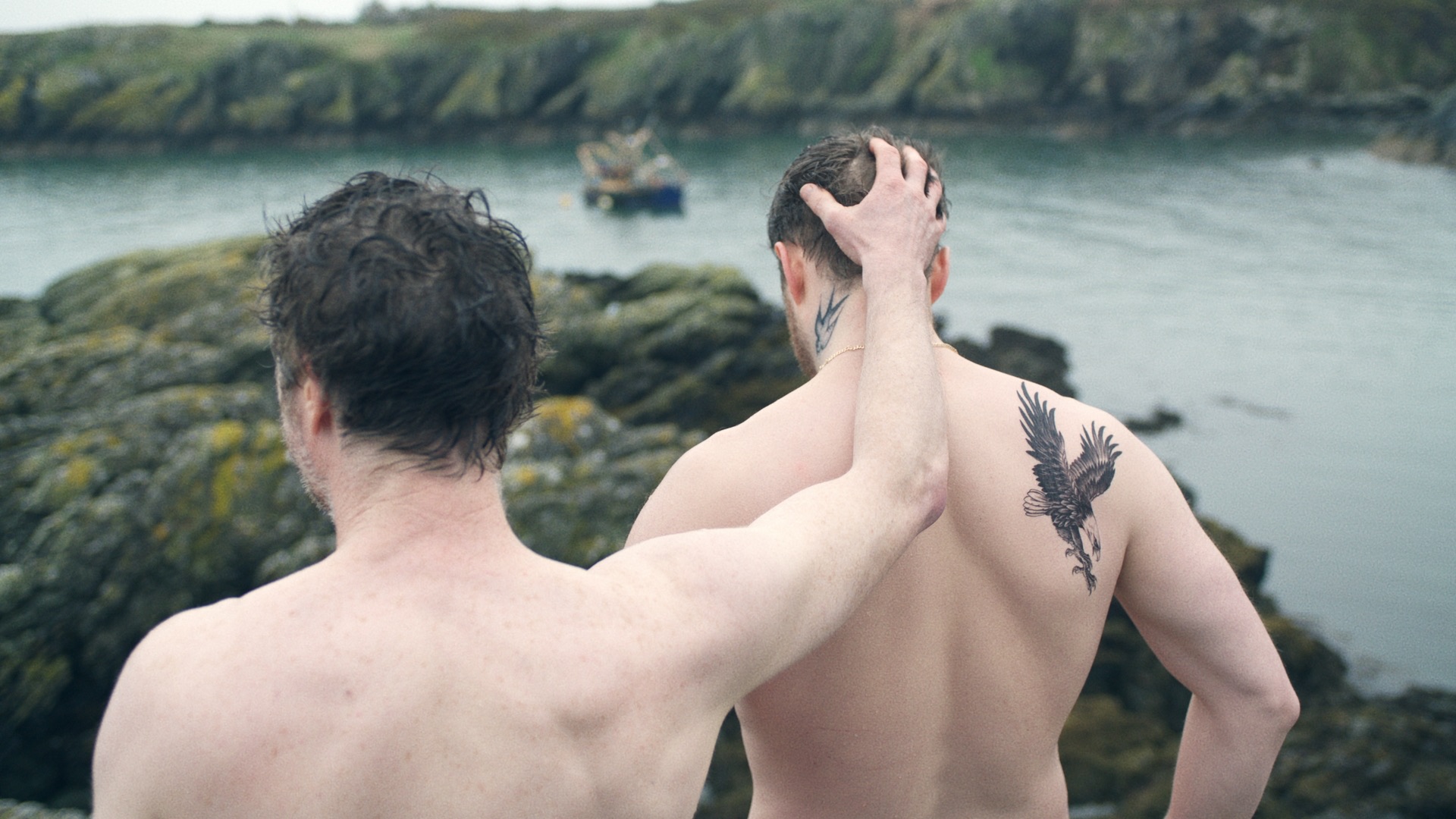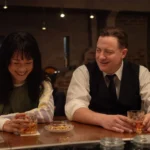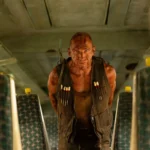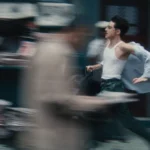With On The Sea, novelist turned director Helen Walsh has created something truly special – the tale of a hand raker in a small and conservative fishing community, drawn to a new, free-spirited deckhand. As married and hard-working Jack, Barry Ward plays stoicism and resilience with dexterity as his traditional brother and the Church watch over him – yet there is a hidden sadness behind his eyes, a need for something more. When Daniel (Lorne MacFadyen) arrives on the scene, he offers him a glimpse into the possibilities of a different life. Sensual and heart-wrenching, On The Sea depicts the power of authenticity and living to one’s full potential, set against the brooding backdrops of the Welsh coast. What About Birdy sat down with the two leads to talk the hidden details in the film, masculinity and the friendships made along the way.
WAB: You star as Jack and Daniel, the protagonists in On The Sea. What were your initial reactions and thoughts to the script? Did you work with Helen [Walsh, the director] on the characters?
BW: I met Helen quite early on, and it was actually the script that ended up being the main topic of discussion rather that the character. The character felt complete in many ways, but it was the ending specifically that I had some questions about. Helen thankfully was really open to discussing it with me. It ended up being tweaked as we went along, and she just kept improving it, rewriting, adding some scenes, taking out others. That’s always a feat, given budget and time restrictions. But I think Jack felt really fully drawn from day one, so it was easy for me to adapt to whatever changes came about in the script.
LM: It was definitely very clear who Daniel was in the script initially too, but Helen was very adaptable all the way through. The most collaborative part of it for me was helping design the costumes, the feel of what they’re like as people based on their work. Helen also allowed me to base the character a bit more on people I’d heard from up in Skye and the surrounding islands, so the script was tweaked accordingly.
WAB: Helen has spoken a lot about the role of location and nature in the film. Jack and Daniel’s profession specifically feeds into that. As a quickly disappearing one, what role does it have to play in the story?
BW: Besides its visual beauty and what that represents, it’s also the fact that the harshness of the landscape hugely informs the people that work there. In terms of plot, it gives us the credibility of portraying the financial difficulties these people are under too. It ticks so many boxes, it’s such a presence throughout, and the characters and places feel inseparable to me, they’re very much a part of the same thing. On set, we had to wear waders, and that also embeds you in the world, because you can’t get rid of that smell. There’s no acting there!
WAB: The film portrays a particular set of masculinity ideas, especially through Jack’s brother, Dyfan. Why is it important that we talk about masculinity now, especially a masculinity potentially in crisis?
LM: There are many negative things that come from certain types of masculinity. It’s more of a repression, the issue of not talking about things. The mental health crisis among men is at an all-time high, with suicide rates through the roof. That’s the more extreme reason as to why we should talk about these sorts of things. But it’s also a real shame, not necessarily just for men, that people are ashamed or scared to be their true self, because of what their surroundings have taught them is the wrong thing. People are scared to pursue something in their life, and end up too far down the line to change it – or so they think. That theme of lost potential is a big one in the film. One of the barriers is this expectation upon the characters to behave and live your life a certain way, do the right job, be with the right person. It’s important to talk about it, because that’s how you end up seeing the artifice.
BW: I agree entirely – it’s a much more sophisticated, civilised and subtle way of dealing with these topics. An open and communicative discourse entails listening, which is great, because in turn it also encourages speaking. What I don’t find helpful is the idea that there is a crisis of masculinity. It’s counterproductive because it inspires an advent of uber masculine up-keepers of the patriarchy to set themselves up as the saviours of masculinity, and it ends up going backwards.
WAB: There is certainly still a reticence to share from men, something that On The Sea counters as Jack and Daniel open up to each other in a way Jack hadn’t necessarily been able to in the past. It’s beautifully understated, and there are so many details to take note of. Are there any that an audience might not pick up on during a first viewing?
BW: What’s funny is that when I see the film for the first time I always see what’s not there, what has been omitted. It takes me two or three viewings to accept it as it is and see it for what it is. There are a lot of subtleties and a lot going on in what’s not said. Helen is a brilliant weaver of subtle strands or motifs running throughout. Very early on in the film, there’s a great conversation between Dyfan and his son in the background, and it plays softly as a separate conversation goes on in the foreground. This really sets up the world as a masculine one, since he’s telling his son he’s not hard enough, and it works a treat, because it sets the tone in a subliminal way.
WAB: What message do you want to leave the audience with?
BW: He has a great one!
LM: [laughs] When we were on the boat out at sea, we had this improvised scene where we’re just supposed to be having some banter. But I came out with a real nugget of wisdom. It was that pirates spend their whole life searching for treasure. But the real treasure are the friendships that they make along the way.
On The Sea screened at the Edinburgh International Film Festival.
